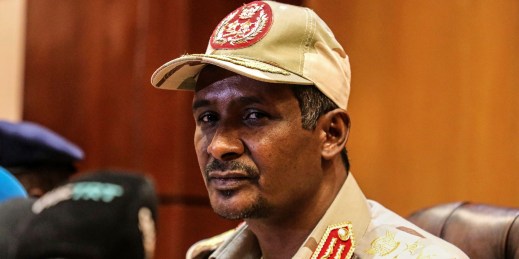Israel and Hamas agreed to a provisional ceasefire deal that, if implemented, would initially last six weeks and see the release of 33 Israeli hostages and hundreds of Palestinian prisoners, as well as allow for the entry of up to 600 trucks carrying humanitarian relief into the Gaza Strip each day. Israel’s Cabinet was originally scheduled to vote on the deal today, but PM Benjamin Netanyahu said a “last-minute crisis” with Hamas was holding up Israeli approval. It is unclear if the deal is at risk. (New York Times; AP)
After 15 months of war, this ceasefire deal—assuming it takes effect—raises countless questions about the future of Israeli-Palestinian relations, and debate about the terms of the agreement will no doubt continue to rage. But overriding all of these questions and concerns is the fact that any ceasefire in Gaza is better than no ceasefire, especially if it improves the grim humanitarian situation for Palestinians in the territory.
That being said, there are two obvious questions raised by any ceasefire deal in a conflict of this duration and intensity: Why now? And, who won?
Part of the change in heart on both sides has to do with external factors, as the terms of the ceasefire more or less represent what U.S. President Joe Biden has been pushing for since May 2024. Since then, Hamas’ sources of support in the region have been significantly weakened—Hezbollah by its own conflict with Israel, and Iran by the fall of its ally, former Syrian President Bashar al-Assad.
Meanwhile, Netanyahu’s calculus has changed due to U.S. President-elect Donald Trump’s imminent return to the White House. Trump has been vocal about his desire to see a deal in place before he takes office, and his special envoy for the region had been involved in the ceasefire negotiations in recent weeks. That doesn’t mean Trump deserves as much credit for the ceasefire as he is claiming. But given that Netanyahu can expect favorable treatment from Trump in the coming four years, it makes sense that he would want to appease the incoming president.
Ultimately, too, the timing of the deal underscores the fact that neither Israel nor Hamas had anything left to gain from the war. Israel has already achieved its primary military objective of decimating Hamas to the point that it no longer poses a cross-border threat. And Hamas had no real chance of improving its situation without the reprieve offered by a ceasefire.
On its face, that would suggest that Israel came out ahead after 15 months of war. But Israel also incurred massive reputational costs internationally as a result of its indiscriminate bombing campaigns in Gaza, which have killed tens of thousands and reduced the territory to rubble. That significantly complicates the regional normalization goals that Israel had been pursuing before the war. And if the deal is seen through to its conclusion, it will result in the Israeli military withdrawing from Gaza while Hamas remains not only intact, but still the dominant actor there, something Netanyahu had pledged not to do.














